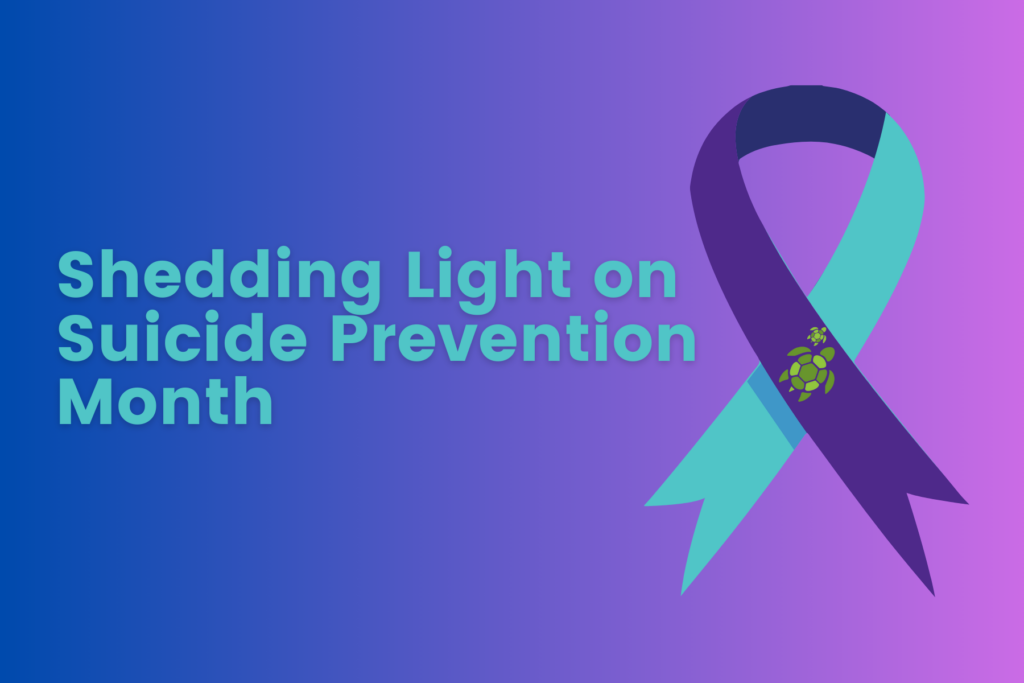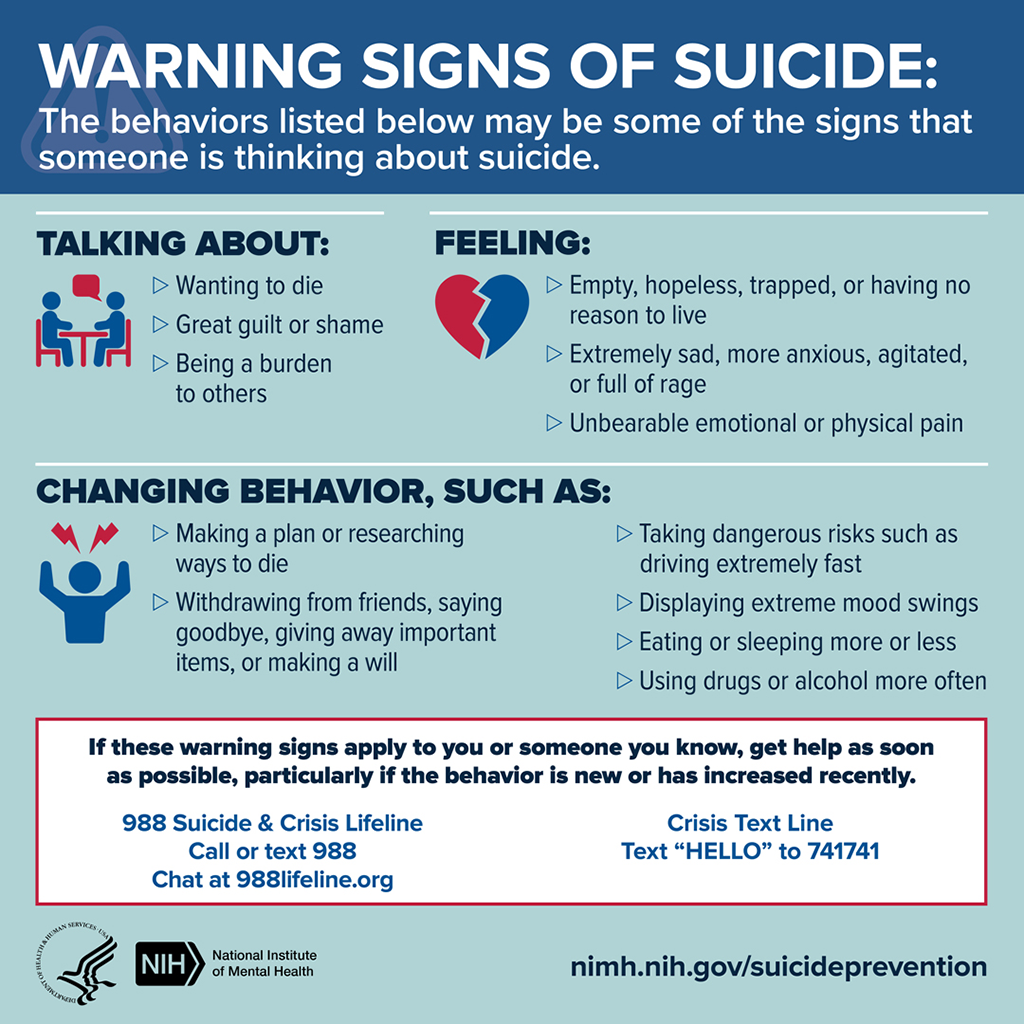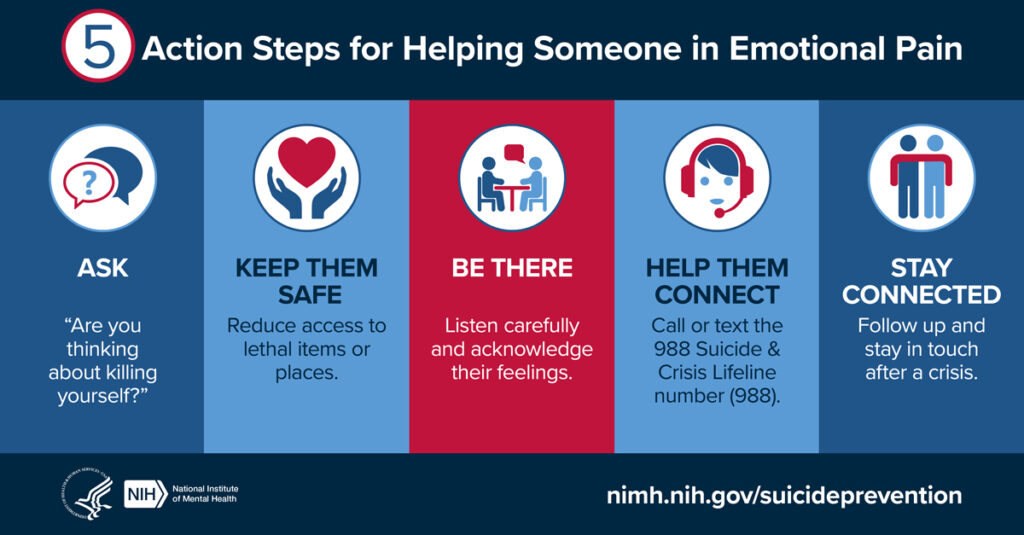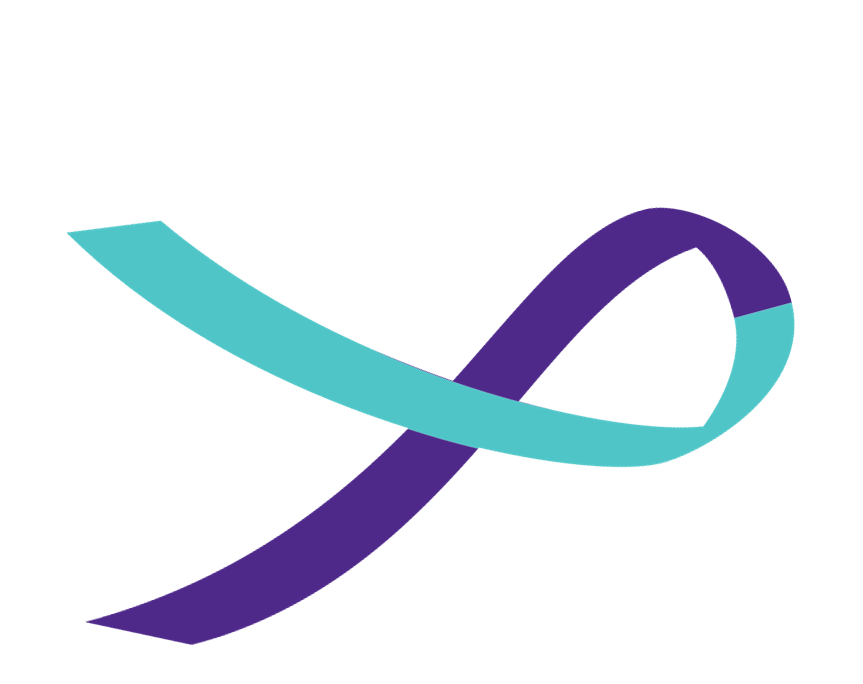September is a month that holds great significance for many. As the leaves change and fall approaches, it marks the beginning of Suicide Prevention Month—an important time for us to reflect, learn, and take action. Suicide is a topic that often remains shrouded in silence, but this month provides an opportunity to break that silence and shed light on the issues surrounding it.

History and Significance of Suicide Prevention Month
Mental Health experts recognized a need for awareness and prevention surrounding the issue of suicide. The month of September was declared Suicide Prevention Month in 2008. Thanks to media attention and dedicated advocacy, it has gained momentum over the past 15 years.
The month is symbolized by blue and purple ribbons or pins in the shape of a semi-colon, representing the idea that there’s more to come after. These symbols are often worn or displayed to show support and solidarity.
Understanding Suicide
Suicide is a global issue that affects millions of people every year. It’s vital to understand the scope of this problem to address it effectively. Suicide doesn’t discriminate—it can touch the lives of anyone, regardless of age, gender, or background. Recognizing common risk factors and warning signs is crucial in prevention, and dispelling myths and misconceptions can help reduce stigma.
Warning Signs of Suicide
The behaviors listed below may be signs that someone is thinking about suicide.
Talking about:
- Wanting to die
- Great guilt or shame
- Being a burden to others
Feeling:
- Empty, hopeless, trapped, or having no reason to live
- Extremely sad, more anxious, agitated, or full of rage
- Unbearable emotional or physical pain
Changing behavior, such as:
- Making a plan or researching ways to die
- Withdrawing from friends, saying goodbye, giving away important items, or making a will
- Taking dangerous risks, such as driving extremely fast
- Displaying extreme mood swings
- Eating or sleeping more or less
- Using drugs or alcohol more often
Source: National Institute of Mental Health

The Impact of Suicide
The repercussions of suicide are long-lasting and devastating. It leaves emotional scars on families and friends left behind to grapple with grief and guilt. Beyond the personal toll, there are also economic and societal consequences. And, perhaps most insidious, the stigma surrounding suicide can make it difficult for survivors to seek the help and support they need. Breaking down these barriers and promoting open conversations about mental health is essential.
Resources for Survivors of Suicide Loss
If you or someone you know is a survivor of suicide loss, remember you are not alone. Numerous resources are available to provide support, comfort, and guidance during this challenging time.
American Foundation for Suicide Prevention (AFSP)
The AFSP offers resources specifically for those who have lost someone to suicide. Their Surviving a Suicide Loss guide can be especially helpful.
Alliance of Hope
The Alliance of Hope was created by survivors for survivors and offers online forums moderated by mental health professionals for survivors of suicide loss. It’s a safe, comforting place to share your story and hear from others who’ve had similar experiences.
National Suicide Prevention Lifeline
The National Suicide Prevention Lifeline (988) provides 24/7, free, and confidential support for people in distress, as well as prevention and crisis resources for those dealing with suicide loss.
Remember, seeking professional help is vital if you’re struggling with your grief. There’s no need to face this alone. Reach out to a mental health professional or a trusted person in your life.
Support and Outreach
Support for individuals at risk of suicide comes in various forms. Friends and family can learn how to provide the help their loved ones need, and mental health professionals play a crucial role in intervention. Additionally, community and online support groups can provide safe spaces for individuals to share their feelings and experiences.
5 Action Steps for Helping Someone in Emotional Pain
Ask
“Are you thinking about killing yourself?”
Keep Them Safe
Reduce access to lethal items or places.
Be There
Listen carefully and acknowledge their feelings.
Help Them Connect
Call or text the 988 Suicide & Crisis Lifeline number (988).
Stay Connect
Follow up and stay in touch after a crisis.

Suicide Prevention Initiatives and Programs
Support for individuals at risk of suicide comes in various forms. Friends and family can learn how to provide the help their loved ones need, and mental health professionals play a crucial role in intervention. Additionally, community and online support groups can provide safe spaces for individuals to share their feelings and experiences.
Numerous organizations are actively involved in raising awareness about suicide year-round. Many are right here in Jacksonville:
LSF Health Systems: Take Suicide Off The Table
This program uses emergency support through the national 988 suicide crisis line and funds follow-up services such as the Link to Life program offered by the Mental Health Resource Center. This program for adults aged 25 and over provides referrals to behavioral health treatment, care coordination, and outreach to support individuals struggling with suicidal ideation.
Child Guidance Center: Rapid Response Program
Our Rapid Response team provides crisis intervention for behavioral health emergencies for all ages in Duval County. A behavioral health expert will engage with a caller virtually and in person to assess the need for services, provide follow-up care, and refer to appropriate aftercare services. You can let people in need know about this valuable resource.
Talkable Communities
Talkable Communities is an innovative collaboration between five nonprofits, providing free mental health trainings across Northeast Florida. Our Question. Persuade. Refer. (QPR) training teaches people how to recognize the warning signs of a suicide crisis and how to question, persuade, and refer someone to help.
Duval County Public Schools: Gain Resilience Obtain Wellness (GROW)
DCPS addresses suicide awareness with our school-aged youth through their Gain Resilience Obtain Wellness (GROW) program. Supporting our youth and reinforcing the importance of behavioral health can make a difference.
Take Action Beyond September
 While Suicide Prevention Month is a critical time to focus on this issue, the need for awareness and prevention doesn’t end when the calendar turns to October next week. It’s essential to continue supporting suicide prevention efforts throughout the year. Advocacy and policy change are also instrumental in creating lasting impact. You, too, can participate by participating in these initiatives or spreading awareness through your channels.
While Suicide Prevention Month is a critical time to focus on this issue, the need for awareness and prevention doesn’t end when the calendar turns to October next week. It’s essential to continue supporting suicide prevention efforts throughout the year. Advocacy and policy change are also instrumental in creating lasting impact. You, too, can participate by participating in these initiatives or spreading awareness through your channels.
As Suicide Prevention Month draws to a close, we must carry the lessons and awareness forward. Remember, the silence around suicide can be broken, and stigma can be reduced. By understanding, supporting, and advocating for those affected by suicide, we can make progress in preventing this tragic loss of life. Let’s commit to keeping the conversation going and breaking the silence, not just in September but every month of the year. Together, we can make a difference and save lives.